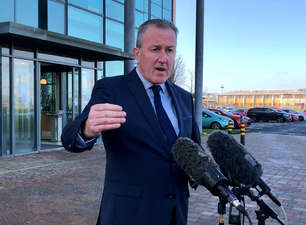
By David Young and Jonathan McCambridge, PA
Stormont’s draft budget would see £21 billion spent on health in three years.
Stormont’s draft budget is proposing a 10% increase in health spending in Northern Ireland, with £21 billion earmarked for services over the next three years.
Ministers voted to publish the proposed budget and send it out for public consultation despite the DUP voting against the spending plans.
The plans, if ultimately approved, will leave other departments facing some tough choices as a result of the 10% cash increase for the health budget.
While none of the other departments would see a reduction in their baseline allocation from the last budget, they will be 2% down on what they would have expected to receive if extra funding were not being diverted to health.
Ministers met virtually on Friday morning to resolve a simmering dispute that had threatened to derail plans to issue the budget for consultation.
A majority of ministers backed a compromise proposal that will allow Sinn Fein Finance Minister Conor Murphy to launch the exercise to gather public and stakeholder feedback on Monday.
At the meeting, the SDLP, Alliance and UUP joined Sinn Fein to vote to support the budget’s top-line aim – to prioritise health spending – and to send it out for consultation.
However, the three smaller parties did not give endorsement to the detailed department spending allocations contained in the plans.
The largest party in the administration, the DUP, voted against the draft budget in its current form.
Mr Murphy accused the DUP of failing to put its money where its mouth was when it came to prioritising health spending.
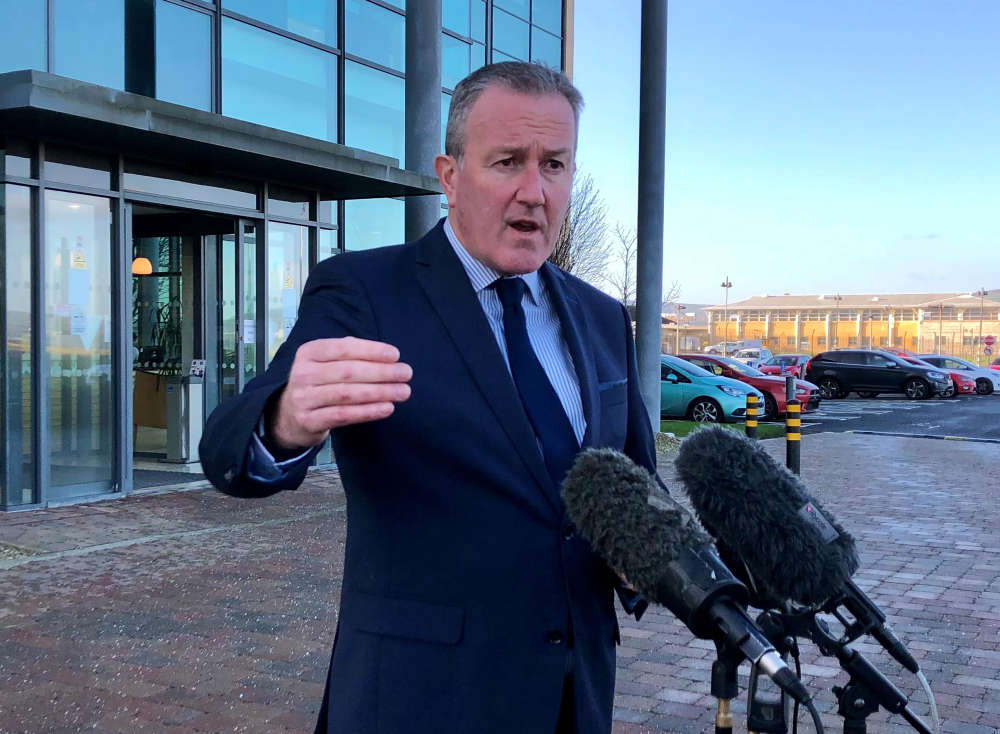
Finance minister Conor Murphy
In response, DUP First Minister Paul Givan claimed the budget was deficient in several areas and lacked detail.
He insisted his party did support prioritising health spending, but he said the budget as it stood was not acceptable.
However, Health Minister Robin Swann said that the draft budget would start to redress years of underinvestment in the health service in Northern Ireland.
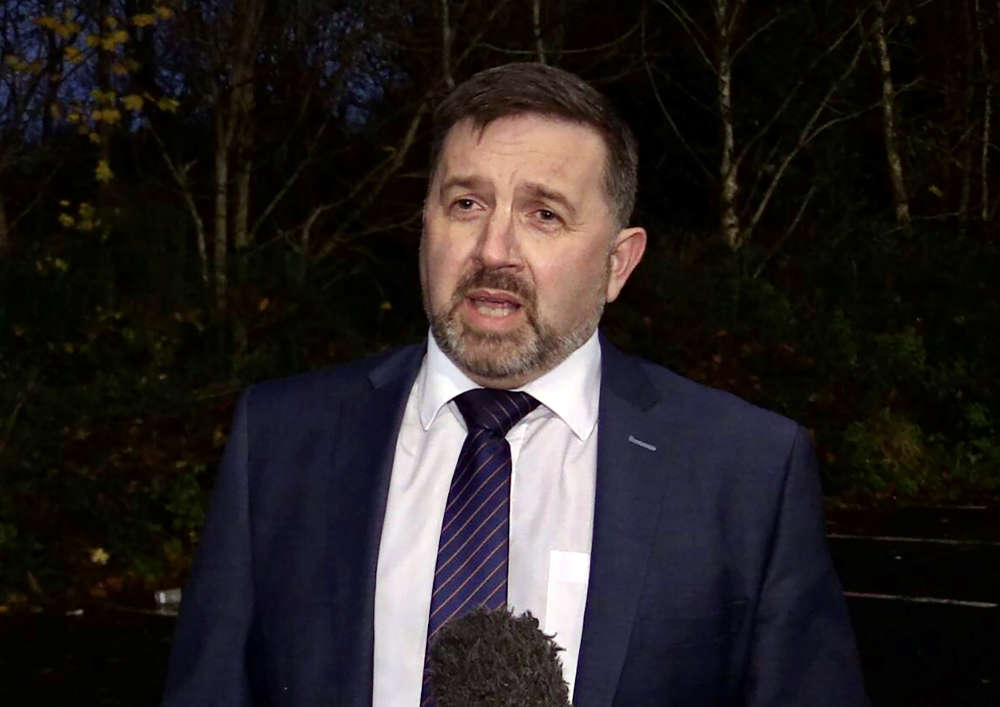
Health minister Robin Swann
Mr Swann told the PA news agency: “We are looking at this as a start, as an investment to claw back some of that underinvestment with regards to the changes and the transformations that we need to make.”
Before the budget can be finalised and agreed by the Executive and Assembly, it must be subjected to a 12-week public consultation exercise.
With the Assembly due to be dissolved at the end of March before the next Stormont election, Mr Murphy was under pressure to begin the consultation next week if those timelines were to be met.
The minister said the additional funding for health would be spent tackling Northern Ireland’s spiralling waiting lists and investing in cancer and mental health services.
Mr Murphy said the Executive wanted to see detailed plans from the Department of Health on how it intended to spend the extra money before ministers made a final decision on the budget.
“We want to be very sure, because it is a big ask of all the departments, it is a big ask of Executive colleagues to do this and I recognise that and that explains, I think, some of the misgivings around some of this,” he said.
“But people do want to prioritise health, that’s very clear, with the exception of the DUP, and so we want to see what that money is going to return, because it is a big, big investment.
“We want to make sure that in three years’ time, we’re not in the same place with waiting lists, and we’re not at the same place with some of the other pressures in the health service.”
He insisted there was no “money tree” at Stormont as he criticised the DUP position.
“No one was asked today to vote for the final budget, people were asked to put out a draft budget, the DUP wouldn’t support even doing that, all of the other parties in the Executive did support doing that,” he said.
“It says to me that the DUP were prepared to talk the talk in relation to prioritising health but when it came to put their money where their mouth was, they weren’t prepared to do that.”
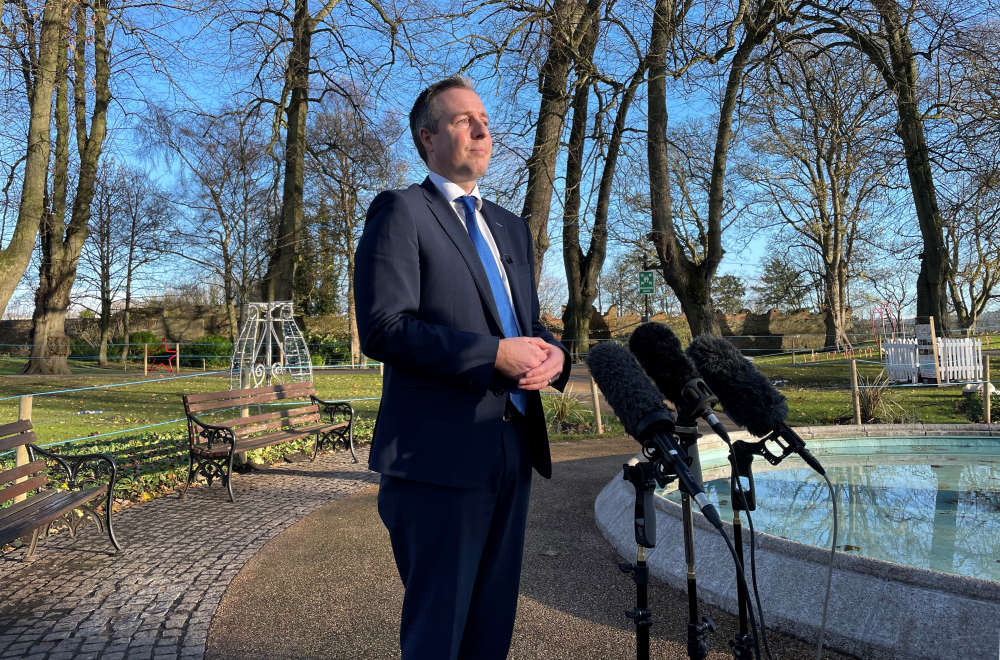
First Minister Paul Givan
Mr Givan said the budget had to be improved through the consultation process or else the DUP would oppose it at the final Executive vote next spring.
“I support the increased funding going into our health service. What this paper lacks is a detailed plan as to how you’re going to transform the health service,” he said.
“What we need to see is the details as to how that will deliver more nurses, more doctors, how it will address the waiting lists that exist, and we haven’t got that in this budget.”
The First Minister specifically raised concerns that a reduction in the Department of Justice’s allocation would lead to a cut in police officer numbers.
“We believe that this budget is deficient in a number of areas,” he told reporters in Lisburn.
“It requires improvement. It is Sinn Fein’s first attempt at it. We don’t believe that it’s good enough.
“But we want to make sure that at the end of this process we have an agreed budget which addresses the needs of the people of Northern Ireland.”
The draft budget also includes a freeze on the regional rate for businesses and householders for the three-year period, as well as specific rates support packages for businesses in 2022-23.
That package would provide a one-month rates holiday to all businesses, with the exception of utilities and larger food stores, and a three-month rates holiday for sectors identified as being hardest hit by Covid-19 – retail, tourism, hospitality, leisure, childcare and airports.
Businesses occupying a vacant retail property will be eligible to 24 months’ rates relief.
The first set of capital projects being supported through an Executive fund linked to the various City/Growth deals in Northern Ireland is also included.
Around £52 million is being allocated to projects under the Executive’s Complementary Fund.
Projects include a £16 million parkland development at Albert Basin in Newry and a £15 million hydrogen innovation centre in Ballymena.


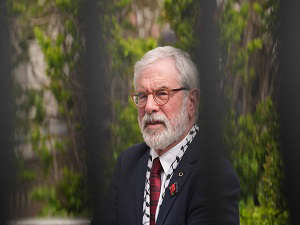 Gerry Adams awarded 100,000 euro in damages after suing BBC for libel
Gerry Adams awarded 100,000 euro in damages after suing BBC for libel
 Victim held in room while masked men ransack Saintfield home
Victim held in room while masked men ransack Saintfield home
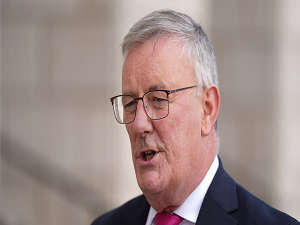 Nesbitt not surprised if ‘devastating’ culture in RVH report repeated elsewhere
Nesbitt not surprised if ‘devastating’ culture in RVH report repeated elsewhere
 Pensioner, 82, killed in crash near Omagh
Pensioner, 82, killed in crash near Omagh
 Kneecap announce new song ahead of headline performance at London’s Wide Awake
Kneecap announce new song ahead of headline performance at London’s Wide Awake